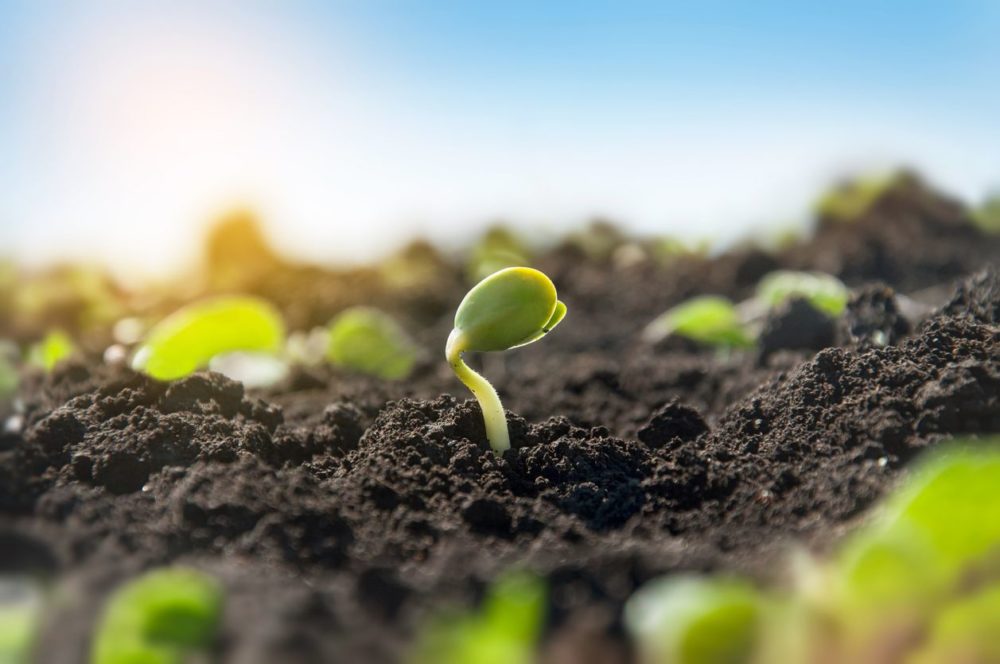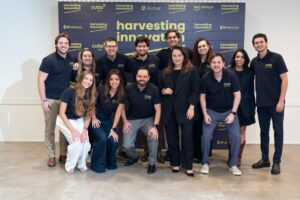In a sign of soaring interest in farming practices that improve the health of soil and boost its ability to capture carbon, French startup Gaïago has secured €13 million ($15.4 million) in its first funding round. The St Malo-based company has developed biological crop input products aimed at revitalizing soils across Europe.
The participation of some of the region’s best-known investors, such as Crédit Agricole and Telos Impact, is a sign of confidence in the startups’s potential – as is the milestone of a European agtech company raising more than €5 million ($5.9 million) at this stage, Gaïago president Jean-Pierre Princen tells AFN.
“It’s very significant because it means those guys have done their due diligence, and they understand the farmers and our project,” said Princen, an industry veteran with more than three decades of experience working for multinationals such as DuPont and Cargill.
The money will go towards strengthening the company’s database and technical capabilities, registering its products across Europe, and recruiting 120 new employees over the next three years to support farmers and partners.
Gaïago’s suite of products includes prebiotics that stimulate the growth of beneficial fungi and improve soil structure, as well as probiotics that fix nitrogen in the soil and improve root nutrition. It’s all based on the concept of unlocking the microbiome – complex communities of microbes that live in and around plants.
Made with “natural” biological ingredients, these products promise to increase yields by improving both soil and plant health and reducing the need for chemical-based fertilizers and pesticides that can pollute the environment and emit planet-warming greenhouse gases.
Other startups offering microbiological products include Pivot Bio and BioConsortia, both based in California, and Colorado’s Concentric Agriculture.
“This is revolutionary agriculture. Soil is about life and our vision is, ‘Mankind thrives when soils thrive’,” Princen said.
“There are so many microorganisms in the soil, and they have been destroyed, literally, with chemicals [and] too much fertilizer. So, we need to do something to recover the soil.”
This requires “a complete shift of mindset,” he said, because farmers have become used to, and dependent on, synthetic chemicals to boost yields. But these continuing practices are destroying the environment and biodiversity, and threaten further yield increases, he added.
“It is also about climate change because by recovering the soil, you have good microorganisms that are able to capture and sequester carbon,” he said.
This potential for carbon capture has drawn investors’ interest elsewhere over the past few years. In 2020, Indigo Ag raised more venture funding than any other agtech company – a large part of which was to help farmers capture carbon through regenerative agriculture practices.
These same practices, which focus on soil health, also attracted investments worth $47.5 billion in 2019. Former US Vice President Al Gore is one well-known proponent of such methods.
Scientists have been warning for years that the world’s soils are in trouble due to variety of factors, including intensive farming.
“Soils are becoming increasingly degraded and face growing pressures from land-use change to the need to feed a growing population under climate change. Soils really are the foundation of much of life on Earth, so preserving them is vital to the future of humanity,” said Lindsay Stringer, professor in environment and development at the UK’s University of York.
In general, keeping soils healthy will help millions of farmers globally, she told AFN.
“If we can protect and regenerate the planet’s soil it won’t just help us to be able to produce enough food but will also support the achievement of other [UN] Sustainable Development Goals,” she added.
Princen sees his company “at the centre of regenerative agriculture and agro-ecology” and said he joined Gaïago after testing the products on his family farm in France where wheat, corn, barley, sugar beets, and many other crops are grown over several hundred hectares.
“It was incredible. The yields of crops were going up by 15% and they were of much better quality; replacing chemical seed treatment with biological ones was providing better yields and better protection,” he said.





